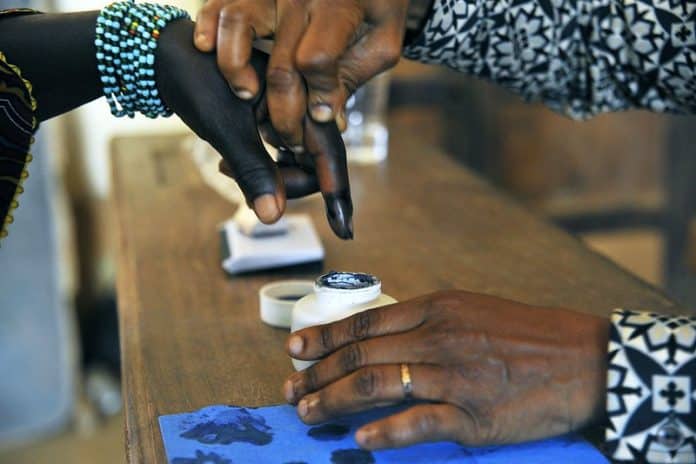In an election year like 2024, when over 2 billion people across at least 60 countries (and the European Union) are eligible to vote, the importance of free and fair elections cannot be overstated. The UN system is providing technical assistance in around 20 countries that will or may hold elections this year.

The UN’s Role in Election Assistance
Elections are a cornerstone of democratic governance, facilitating political transitions, the implementation of peace agreements, and the consolidation of democracy. The UN plays a significant role in supporting these processes through its electoral assistance programs. These programs are initiated upon the request of a Member State or based on a mandate from the Security Council or General Assembly. This ensures that the assistance provided is tailored to the country’s specific needs, respecting its sovereignty while maintaining impartiality and neutrality.
Since 1991, the UN has provided electoral assistance to over 115 countries. The organisation has helped organize and conduct elections in countries such as Angola, Cambodia, the Democratic Republic of the Congo, El Salvador, Haiti, Kosovo, Liberia, Mozambique, Namibia, Sierra Leone, and Timor-Leste, as well as Afghanistan and Iraq.

As a key component of peace agreements, elections allow war-torn countries to exercise their right to choose their government and build democratic structures. The UN, including its Peacekeepers, plays a crucial role in this process, ensuring the entire polling process is free and fair. From preparing laws and guidelines to providing security and logistical support, the UN’s involvement is instrumental in building broad civilian support and dissipating fear.
| United Nations Mission in Liberia (UNMIL)
Before the United Nations Mission in Liberia (UNMIL)’s 15-year deployment, Liberia experienced a prolonged civil crisis from 1989 to 2003, resulting in over a quarter million deaths and the displacement of thousands, with around 850,000 refugees fleeing to neighbouring countries. Governance and the rule of law completely broke down. UNMIL played a crucial role in Liberia’s recovery, especially in supporting the National Transitional Government and facilitating three successful elections in 2005, 2011, and 2017. UNMIL provided logistical support by transporting voting materials, reconditioning roads, and training thousands to work with the National Elections Commission. It also developed election messages and offered media training to local journalists, contributing to the country’s first peaceful transfer of power in over 70 years.
|
The Evolving Nature of UN Electoral Assistance
The UN’s approach has evolved from organizing and supervising elections to providing technical support to build public confidence in electoral processes and strengthen Member States’ capacity to conduct credible, inclusive, and peaceful polls. This shift underscores the UN’s commitment to empowering nations to manage their own electoral processes while adhering to democratic principles.
The UN’s technical support includes developing or improving electoral laws, processes, and institutions, focusing primarily on election administration bodies. This assistance is tailored to the specific needs of the requesting Member State and aims to foster sustainable solutions for future elections. The UN also promotes the inclusion of women, people with disabilities, and youth in electoral processes, ensuring that elections are also inclusive and representative.
Different UN entities collaborate to ensure a comprehensive and coordinated approach to electoral assistance. The Under-Secretary-General for Political and Peacebuilding Affairs serves as the UN Focal Point for electoral matters, responsible for assessing requests for assistance and setting the parameters for UN involvement in specific countries. The Electoral Assistance Division (EAD) within the Department of Political and Peacebuilding Affairs (DPPA) supports the focal point by maintaining a roster of experts, advising on electoral policies, and providing capacity-building support.

EU-UN Electoral Assistance Partnership
The European Union (EU) and the United Nations Development Programme (UNDP) have a longstanding partnership in the field of electoral assistance, rooted in their shared commitment to democratic governance. The EU is a major donor in this field, supporting electoral assistance projects and election observation missions. These activities, while independent, complement each other by building public confidence in electoral processes, deterring fraud and violence, and strengthening democratic institutions.
Since 2007, the European Commission has funded electoral assistance programs worth over 500 million euros in around 70 countries. The EU’s approach has evolved to include new instruments and a more nuanced understanding of the complexities of democratic systems, emphasizing country-specific strategies.
The Joint Task Force (JTF) provides technical and advisory support to all worldwide EC-UNDP joint electoral assistance projects. It assists UNDP Country Offices and EU Delegations in project formulation, implementation, monitoring, and evaluation.
In 2004, the UNDP and the EC signed a Strategic Partnership Agreement to facilitate global, regional, and country-level policy dialogue and collaboration. Since 2006, this partnership has resulted in over 100 joint electoral assistance projects, reflecting a robust and effective collaboration aimed at promoting democratic governance and electoral integrity worldwide.

Through its technical assistance, capacity-building efforts, and partnerships with entities like the EU, the UN supports Member States in conducting credible, inclusive, and peaceful elections.
Elections foster social cohesion, ensure accountable governance, and prevent conflict. They empower individuals to shape their societies, voice their concerns, and hold their leaders accountable. In an era of rapid globalization, conducting free and fair elections is vital for maintaining democratic health and legitimacy. Through the UN, the international community has a responsibility to uphold the integrity of electoral processes worldwide, ensuring transparency, inclusivity, and fairness.
Additional links:





